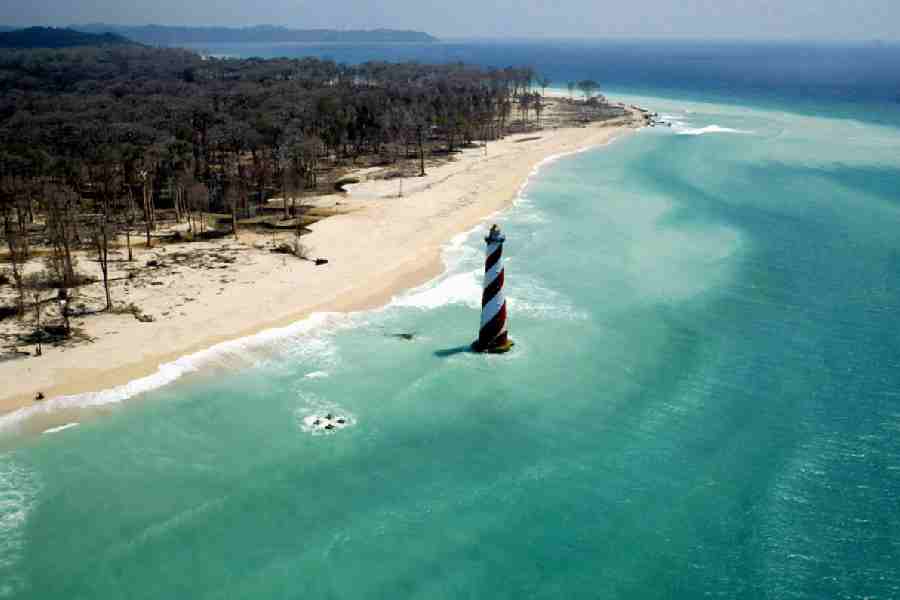If we accept that ecological concerns are as worthy as developmental needs, then the decision to have an infrastructure behemoth on an archipelago must be weighted by its ecological detriment. The final environmental clearance for the Great Nicobar Island infrastructure project by the ministry of environment, forest and climate change was given in November 2022. A public hearing process on the draft Social Impact Assessment report has been concluded without consulting the Shompens and the Nicobarese, the island’s indigenous tribes. A group of anthropologists have written to the National Commission for Scheduled Tribes highlighting the lurking peril. The final probe report was studied by a committee comprising officials from IITs, the National Institute of Ocean Technology and the National Centre for Coastal Research.
Decks were cleared for the “[h]]olistic [d]evelopment of Great Nicobar Island”, as the ministry put it, despite red flags. Concerns over ecology, rights of the indigenous communities, tectonic volatility and vulnerability of the island towards disaster — it bore the brunt of the 2004 tsunami — were put on the back-burner. The mega project envisages an International Container Transhipment Terminal, a greenfield international airport, a township, and a gas and solar power plant. Nearly 85% of the Great Nicober Island was declared a biosphere reserve in 1989 and included in UNESCO’s Man and the Biosphere Programme in 2013. Many activists have called the project an ecocide since it will lead to the destruction of 244 sq km of rainforests.
With an expanse of over 1,000 sq km, the Great Nicobar Island is a biodiversity hotspot, home to hundreds of rare flora and fauna, some of which are listed as ‘vulnerable’ in the International Union for Conservation of Nature’s list of threatened species. Though such mitigation measures as translocation of coral reefs have been proposed, experts and palaeontologists fear thousands of reefs would be destroyed. Conservationists and biodiversity experts have objected strongly to this project fearing it will put the island’s ecosystem in danger. Their concerns include the hazards of developing a township on a seismically volatile landmass, the deleterious impact on coastal nesting sites of vulnerable sea turtles, and a devastating loss of forest cover.
Votaries of the project assert that the idea is to leverage the locational advantage of being on the international sea route and develop Great Nicobar as a sustainable global destination for business, trade and leisure. They feel that the Union territory can participate in the regional and global maritime economy by becoming a major player in cargo transhipment. An airport to be developed as a joint military-civil, dual-use airport under the operational aegis of the Indian navy will boost tourist traffic currently zeroing in at Port Blair.
The Great Nicobar Island lies on a major seismic fault line. There have been over 400 minor earthquakes in the last decade and seismologists are worried about the fact that the island is close to Banda Aceh in Indonesia, the epicentre of the December 2004 tsunami. A mega shipment terminal at such a location is fraught with risks. The environmental impact assessment report says over six lakh people will inhabit the island in the future, up from little more than 8,000. The Shompens and the Nicobarese would face further displacement.
Environment support groups have alleged that India’s clearance to the project makes a mockery of the Forest Conservation Act (Conservation), 1980 and the rights of the indigenous people. Ecological concerns have, once again, been overridden in the name of development.










